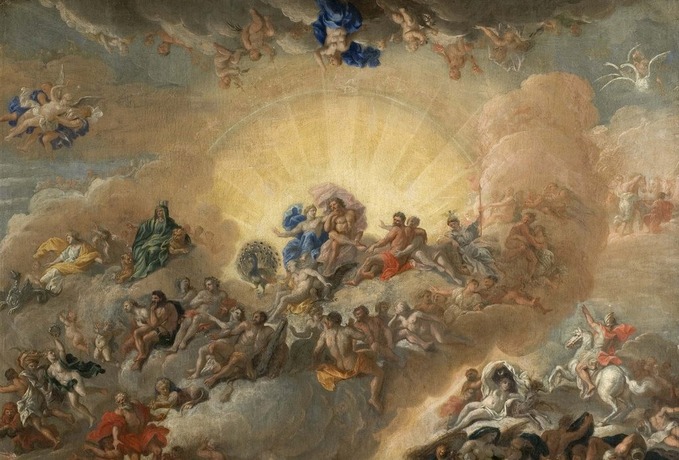Grace Notes: Discerning the future
-
 July 24, 2025By SISTER ANNE MARIE WALSH, SOLT
July 24, 2025By SISTER ANNE MARIE WALSH, SOLT
Columnist
In the course of an ordinary life, many things arise which can challenge our faith. This can be especially difficult when the issue is rooted in groundbreaking new developments in the world of technology, medical knowledge or man’s capacity to alter life in both positive and negative ways scientifically.
These kinds of things tend to captivate our attention and, at times, keep us from critical ethical considerations and rational judgments about the potential and/or dangers of these developments. People who are weak in their faith or have no faith at all are ready targets for the extraordinary promises that may result from these developments.
In our time, one of the new challenges facing the church and the world at large is something called transhumanism. Transhumanism is a movement that seeks to transcend the limitations of being human, primarily through the use of technology inserted into our lives in ways that have the potential to seriously compromise our autonomy and individual freedoms.
Transhumanism makes some of the same promises as other movements have, such as the Enlightenment, but goes beyond them.
The concept is not actually new. But not until now have we had any realistic hope of actually succeeding in affecting some of the changes Transhumanism aspires to. The growth in technology has now changed that.
The particular danger of transhumanism, however, is new. Its most radical end seeks to create what amounts to a kind of superior, hybrid creature that transcends the limits of human capacities by marrying humanity with technology in ways that fundamentally alter our humanity.
This would be, for instance, attempting to implement a kind of marriage between “machine with humanity,” as seen in the introduction and insertion of micro-chips that expand or take over mental processes, etc. Theologically, this presents a major red flag since we are most like God in his image and likeness because of our intellect and will.
To interfere with that by “computerizing” or overriding specific mental processes can easily become sinful. The reason, for instance, that drunkenness is sinful is because we surrender our faculties over to a foreign influence. One would have to question whether we are not, in fact, doing that same thing in the transhumanist scenario.
This is not to disparage the noble aspirations of those who seek to make technology serve the human person, as with implanted devices that help people walk, communicate, or simply function at a fuller capacity. Here, there is no attempt to “re-create” the human person but rather to heal or assist deficiencies and handicaps in those who have been compromised by illness, accident or genetic anomalies. But one must be mindful of the temptations inherent in this area.
Zoltán Boldizsár Simon sums it up well:
“Simply put, it is not the betterment ‘of’ the human condition that transhumanism desires, but the creation of something better ‘than’ the human condition as we know it. Where the Enlightenment assumed the malleability of human beings and human capacities, transhumanism instead presupposes that, whatever the human being and human capacities may be, technology can transcend them. Whereas the Enlightenment promised the unfolding of an already assumed human potential, transhumanism wishes to surpass what we think is humanly possible. Finally, if the Enlightenment thought that human perfectibility plays out as the course of history in a scenario of procedural and developmental change, transhumanism aims at introducing changes that are not merely stages of a historical development but potentially displaces the entire schema of history itself.”
One way to view this from a spiritual perspective is to see it as humanity’s subconscious attempt to reverse the fall. Deeply embedded in this is a fear of suffering and death. As the saying goes: “We come from dirt, we go to dirt, and in between we garden.” There’s a part of us that’s always looking to get back to the garden, or what could be called our original happiness and our original potential.
The reversal of the fall, though, really requires that we humble ourselves, acknowledging our very real limitations and our need for a savior, our need to cede our control back to God. Before the fall, when God was in control, we lived in paradise. Once we took over control for ourselves, paradise was closed to us.
This should be a profound lesson because, unfortunately, much of human history involves attempts to return to the garden, albeit without God. All the movements seeking to create a utopia are about this. All the attempts we make to transcend suffering and death are about this.
We don’t seem to have learned the lesson that separating ourselves from God bans us from the garden, from paradise, from our own immediate happiness. We cannot live or achieve the happiness for which we were originally created without God. God is what makes paradise, paradise. Without him, there is no paradise. Sadly, unless we truly learn that lesson, our “progress” will lead us to shocking places which today seek to separate us not just from God but from our own humanity. All the more important to discern which train you board to the future, and what the ultimate destination of that train will be.
HOME
